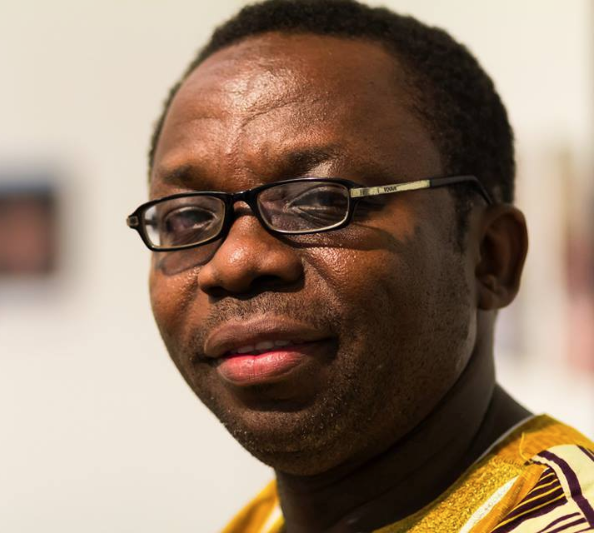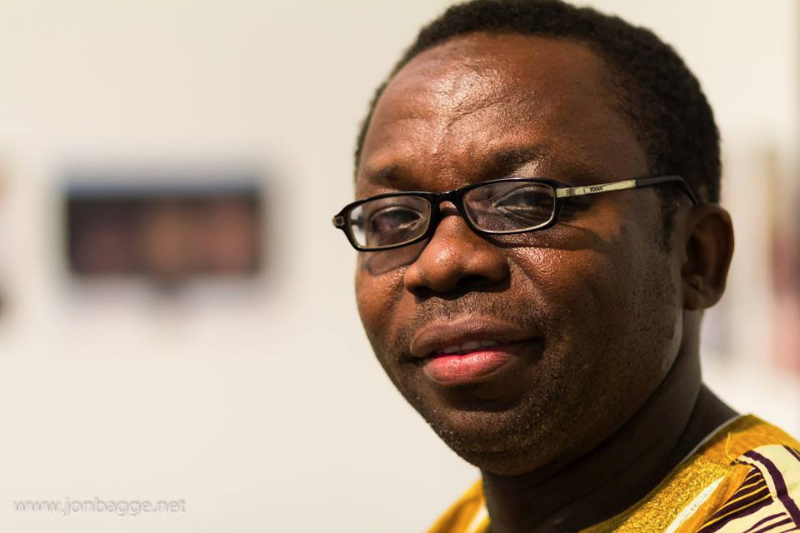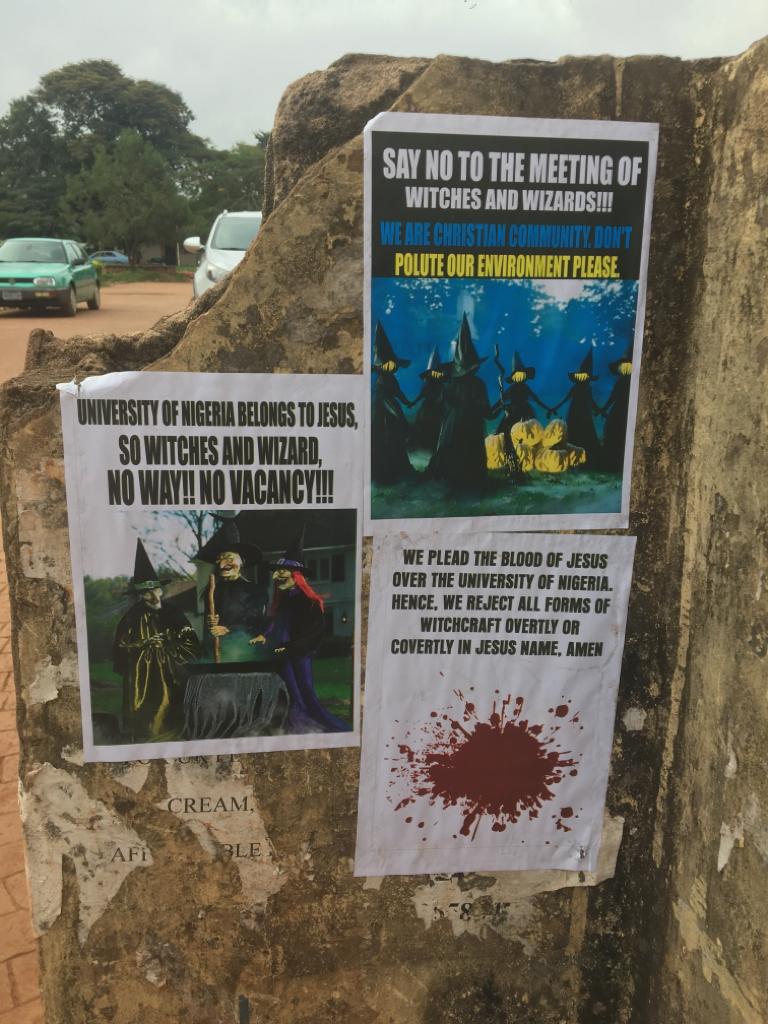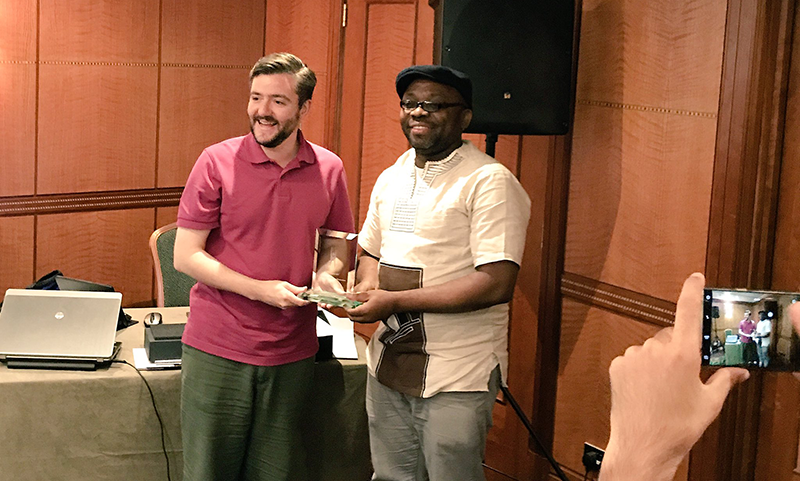
Leo Igwe from Nigeria: “Many might die of hunger, not as a result of the virus.”
#GlobalHumanismNow: an update from Humanist Association of Nigeria

#GlobalHumanismNow: an update from Humanist Association of Nigeria
#GlobalHumanismNow is a series of mini-interviews with our Members and Associates from all around the world where we ask them how they are coping with the global coronavirus emergency, to explain what initiatives they are taking, and to tell us how the global humanist community can support them.
All interviews are available here: hmnts.in/GlobalHumanismNow
Today we speak with Leo Igwe, Chairman of Humanist Association of Nigeria and Founder of AfAW (Advocacy for Alleged Witches), a project funded by Humanists International.
Humanists International: Hi Leo, thank you for accepting our invitation. Can you please tell me how the current situation in Nigeria is?
 There is so much uncertainty and fear. Few tests have been conducted and the cases are under 500. The number is expected to rise as more tests are conducted.
There is so much uncertainty and fear. Few tests have been conducted and the cases are under 500. The number is expected to rise as more tests are conducted.
(UPDATE: as of 17 March, Nigeria has 373 cases and 11 deaths)
How has the government responded to the crisis?
At the moment there is a lockdown in the capital cities of Lagos and Abuja. Another state near Lagos, Ogun, is in lockdown. There are curfews in states across the country from 7 PM to 6 AM. The schools are closed and many offices work for fewer hours per day.
While many are worried about COVID-19, people are more concerned that if the lockdown continues, many will die, not as a result of the virus but of hunger. There have been protests in some parts of the country due to lack of palliatives and other necessities that can help people cope with the lockdown.
Do you see any other changes in society?
The outbreak of COVID-19 has emboldened many Nigerians to be more open and public in criticizing religions. The pandemic has indeed upended the healing claims that religions have used to exploit people over the years.

Signs against alleged witches outside the University of Nigeria in Nsukka
On the other hand, misinformation is worsening the situation. There is so much fear, panic and uncertainty in Nigeria especially since some foreign embassies started evacuating their nationals. There is so much information flying around as to the origin, nature and spread of the virus. The internet has been helpful in a way in getting people update regarding the spread of the virus.
But also superstition is a big problem, right?
Superstition is a huge problem indeed. It’s almost like another virus to fight. Witchcraft accusations related to the virus are increasing and with AfAW we are doing what we can to prevent alleged witches from being harassed and lynched.
Also, many people are desperate and vulnerable so they are prone to being exploited by snake oil sellers. Humanists need to act fast, and to spread proper evidence-based information.
How is your organization responding to the emergency?
Physical meetings have been cancelled or postponed. We have been using social media more to reach members and promote campaigns and activities.
More in general, how do you think we should face this emergency as humanists? Which humanist principles should we value most right now?
Solidarity and compassion, social responsibility and appreciation of life in the here and now.
How can the international community support your efforts?
Global inequality leaves humanists in some parts of the world with more or fewer resources to cope with the pandemic. The fight against the virus is not the same all around the world because of this inequality, and in some countries some people might survive to the virus, but die instead of hunger.

Leo Igwe at the 2017 General Assembly in London, presented with the Distinguished Services to Humanism Award by Humanists International’s President Andrew Copson
The support of the international community is urgent and vital. We need to translate the humanist idea of one common and universal humanity into practice.
And what is your message to the global humanist community?
The coronavirus pandemic has been a lesson on life, on how fragile and valuable life is. Let’s cherish every moment and strive to live life to the best and the fullest. Our life could slip away at any time and place. A microorganism could cause it to diminish, disintegrate and disappear forever. So let’s live every moment, every day as if it is our last.
Thank you for participating in the #GlobalHumanismNow series, Leo!
Thank you, Giovanni. Stay safe!
If you represent a Member or Associate of Humanists International and you want to participate in the #GlobalHumanismNow series, please contact us at [email protected]